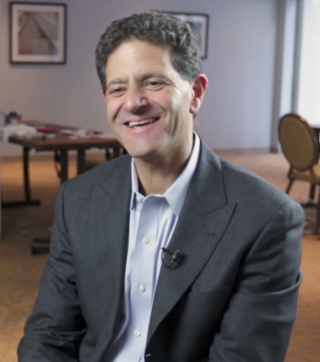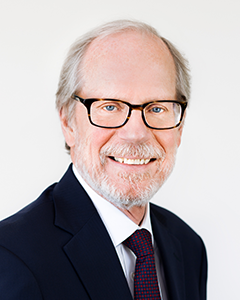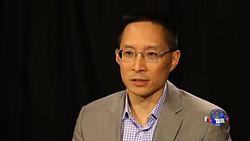Citizenship is a membership and allegiance to a sovereign state.

The politics of Hong Kong takes place in a framework of a political system dominated by its quasi-constitutional document, the Hong Kong Basic Law, its own legislature, the Chief Executive as the head of government and of the Special Administrative Region and of a politically constrained multi-party presidential system. The Government of the Hong Kong Special Administrative Region of the People's Republic of China is led by the Chief Executive, the head of government.
Civics is the study of the rights and obligations of citizens in society. The term derives from the Latin word civicus, meaning "relating to a citizen". The term relates to behavior affecting other citizens, particularly in the context of urban development.
Participatory democracy, participant democracy, participative democracy, or semi-direct democracy is a form of government in which citizens participate individually and directly in political decisions and policies that affect their lives, rather than through elected representatives. Elements of direct and representative democracy are combined in this model.
Cosmopolitanism is the idea that all human beings are members of a single community. Its adherents are known as cosmopolitan or cosmopolite. Cosmopolitanism is both prescriptive and aspirational, believing humans can and should be "world citizens" in a "universal community". The idea encompasses different dimensions and avenues of community, such as promoting universal moral standards, establishing global political structures, or developing a platform for mutual cultural expression and tolerance.
An ethnocracy is a type of political structure in which the state apparatus is controlled by a dominant ethnic group to further its interests, power, dominance, and resources. Ethnocratic regimes in the modern era typically display a 'thin' democratic façade covering a more profound ethnic structure, in which ethnicity – and not citizenship – is the key to securing power and resources.

Chinaman's chance is an American idiom which means that a person has little or no chance at success, synonymous with similar idioms of improbability such as a snowball's chance in hell or when pigs fly. Although the origin of the phrase is unclear, it may refer to the historical misfortunes which were suffered by Chinese-American immigrants. The expression is controversial due to its use of the term "Chinaman".

Civic engagement or civic participation is any individual or group activity addressing issues of public concern. Civic engagement includes communities working together or individuals working alone in both political and non-political actions to protect public values or make a change in a community. The goal of civic engagement is to address public concerns and promote the quality of the community.
Rogers M. Smith is an American political scientist and author noted for his research and writing on American constitutional and political development and political thought, with a focus on issues of citizenship and racial, gender, and class inequalities. His work identifying multiple, competing traditions of national identity including “liberalism, republicanism, and ascriptive forms of Americanism” has been described as "groundbreaking." Smith is the Christopher H. Browne Distinguished Professor of Political Science at the University of Pennsylvania. He was the president of the American Political Science Association (APSA) for 2018–2019.
Active citizenship involves citizens having control over their daily lives as users of public services, allowing them to influence decisions, voice concerns, and engage with service provision. This includes both choice and voice, enabling citizens to impact service provision by participating in local policies, interacting with institutions, and expressing preferences. It encompasses activities in politics, workplaces, civil society, and private spheres. This concept emphasizes how citizens' interactions with staff, administrators, and politicians at different levels affect their ability to shape services according to their needs. Three dimensions are considered: choice, empowerment, and participation. Choice involves informed decisions about service use, empowerment allows individuals to control their lives as users, and participation includes engaging in policy processes and influencing services.
James Hamilton Tully is a Canadian philosopher who is the Distinguished Professor Emeritus of Political Science, Law, Indigenous Governance and Philosophy at the University of Victoria, Canada. Tully is also a Fellow of the Royal Society of Canada and Emeritus Fellow of the Trudeau Foundation.

Nicolas Joseph Hanauer is an American entrepreneur and venture capitalist.

Danielle Susan Allen is an American classicist and political scientist. She is the James Bryant Conant University Professor at Harvard University. She is also the former Director of the Edmond & Lily Safra Center for Ethics at Harvard University.

History of citizenship describes the changing relation between an individual and the state, known as citizenship. Citizenship is generally identified not as an aspect of Eastern civilization but of Western civilization. There is a general view that citizenship in ancient times was a simpler relation than modern forms of citizenship, although this view has been challenged.
Action civics is a modern and alternative form of civics education in the United States. Action civics is an applied civic education process in which participants learn about government by examining issues in their own community and then select a focus issue for action through a process of debate, research the issue and learn advocacy strategies, develop civic skills such as public speaking, formulate a plan, mobilize, educate, then evaluate, and reflect on their experience. Participants' voices are encouraged, valued and incorporated. Participants learn by doing, with a focus on collective action. Action civics can encompass a number of different actions from community service to electoral engagement and from talking about concerns with public officials to creating peer education campaigns.
Demand-side economics is a term used to describe the position that economic growth and full employment are most effectively created by high demand for products and services. According to demand-side economics, output is determined by effective demand. High consumer spending leads to business expansion, resulting in greater employment opportunities. Higher levels of employment create a multiplier effect that further stimulates aggregate demand, leading to greater economic growth.

Athenian democracy developed around the 6th century BC in the Greek city-state of Athens, comprising the city of Athens and the surrounding territory of Attica. Although Athens is the most famous ancient Greek democratic city-state, it was not the only one, nor was it the first; multiple other city-states adopted similar democratic constitutions before Athens. By the late 4th century BC, as many as half of the over one thousand existing Greek cities might have been democracies. Athens practiced a political system of legislation and executive bills. Participation was open to adult, free male citizens The metics probably constituted no more than 30 percent of the total adult population.

Stephen B. Heintz is an American nonprofit executive and public policy expert. Since 2001, he has served as president of the Rockefeller Brothers Fund, a family foundation with an endowment of approximately $1.2 billion that advances social change for a more just, sustainable, and peaceful world. Heintz coined the term “acupuncture philanthropy” to describe his philanthropic approach of leveraging modest financial assets to trigger larger systemic change on critical issues.
Middle-out economics is a branch of demand-side macroeconomic theory. It identifies the buying power of the middle class as the necessary ingredient for job creation and economic growth. With consumption typically responsible for two-thirds of the gross domestic product in the Americas consumer spending is key. Middle-out economics maintains it is only the middle class that can create the aggregate demand necessary for business to support full employment levels. Given the wealthy's high propensity to save, middle-out economics holds that large concentrations of wealth are not sufficient cause for job creation. Middle-out economics maintains companies don't hire when they have an abundance of profits; they hire when they have an abundance of customers.
The perpetual foreigner, forever foreigner or perpetual other stereotype is a racist or xenophobic form of nativism in which naturalized and even native-born citizens are perceived by some members of society as foreign because they belong to a minority ethnic or racial group. When citizenship has been granted and yet the group of people is persistently viewed as foreign, the term alien citizen has been also used to in some scholarship describe these groups.








